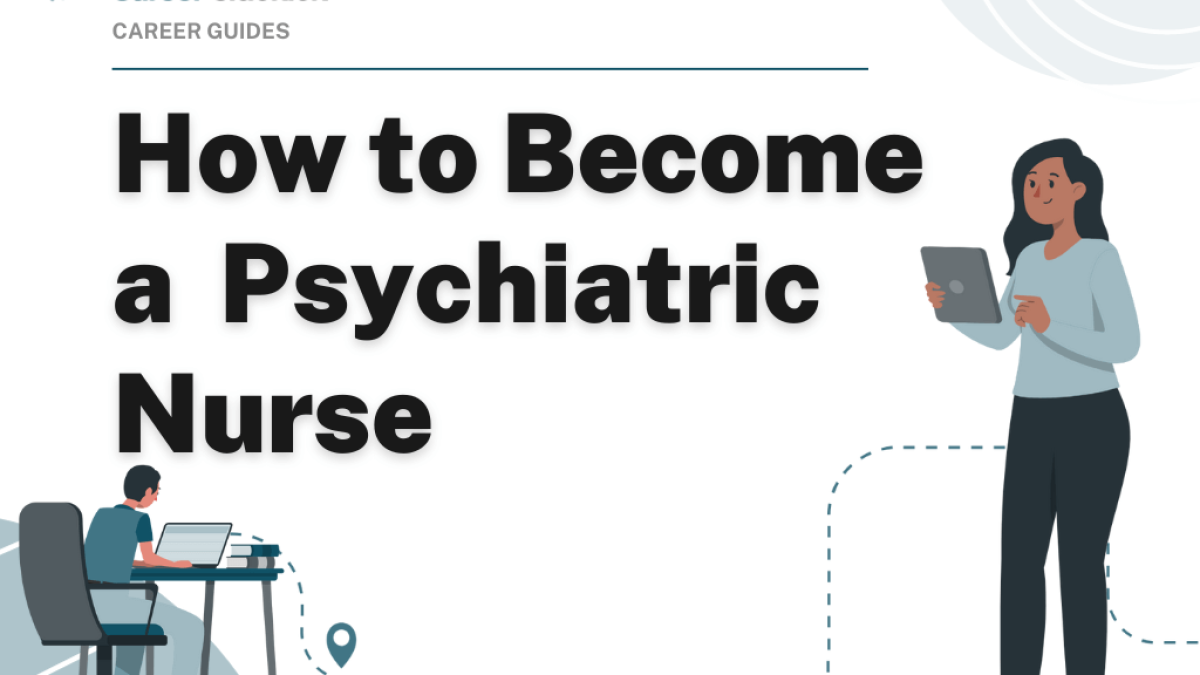Charting a Career Path in Psychiatric-Mental Health Nursing: Skills, Certification, and Opportunities
What Is Psychiatric-Mental Health Nursing?
Psychiatric-mental health nursing is a specialized field within nursing devoted to promoting mental wellness, preventing mental illness, and intervening when mental health concerns arise. Professionals in this area serve individuals, families, and communities coping with everything from daily stressors to severe psychiatric disorders. Unlike other nursing specialties, psychiatric-mental health nurses frequently build long-term therapeutic relationships with their patients, offering ongoing support through varying stages of recovery and wellness. This relationship-based model enables nurses to address symptoms and advocate for social, cultural, and environmental changes that advance mental well-being and dignity.
Modern advancements have led many aspiring professionals to pursue online psychiatric nurse practitioner programs, such as Northern Kentucky University’s. These programs provide the flexibility to build expertise while maintaining work or family responsibilities. This specialty is instrumental in assessment, therapy, medication management, and holistic care. Through skilled intervention, psychiatric nurses act as lifelines for people during some of their most vulnerable moments, ensuring a holistic approach to both mind and body.
Vital Skills for Success in the Field
Psychiatric-mental health nurses must possess personal and professional skills to flourish. Empathy is the bedrock, allowing nurses to genuinely understand patients’ emotional pain and social realities. Effective verbal and nonverbal communication builds rapport, which is especially important when working with individuals who may feel misunderstood or stigmatized. These nurses must remain unflappable in unpredictable situations, quickly defusing crises or supporting patients through trauma, loss, and significant life changes.
- Active listening: Gathering facts, underlying emotions and context that drive behavior.
- Crisis management: Utilizing calm, structured strategies to maintain safety for everyone involved—often in fast-moving scenarios.
- Critical thinking: Assessing overlapping symptoms, considering psychosocial factors, and making well-informed clinical decisions.
- Teamwork: Collaborating with a multidisciplinary team that could include physicians, social workers, psychologists, and case managers for integrated patient care.
- Resilience: Bouncing back after challenging interactions, learning from setbacks, and finding satisfaction in patient progress, no matter how incremental.
These essential skills underpin high-quality care and can dramatically alter patients’ recovery journeys. For example, a nurse with keen de-escalation techniques can help prevent self-harm or reduce the need for restraints, creating a safer, more supportive healing environment.
Steps Toward Certification
Formal credentials are crucial for those wishing to grow in psychiatric-mental health nursing. The journey typically begins with an accredited nursing program—an Associate Degree in Nursing (ADN) or Bachelor of Science in Nursing (BSN). Once licensed via the NCLEX-RN exam, nurses gain practical experience in mental health environments, such as inpatient psychiatric units or community clinics, to develop foundational expertise.
Certified nurses can perform comprehensive assessments, develop and implement treatment plans, and manage psychopharmacology. This advanced scope of practice enables them to meet a wide range of patient and community needs while offering higher earning potential and career flexibility.
Career Pathways in Psychiatric-Mental Health Nursing
Career advancement in psychiatric-mental health nursing is more diverse than ever before. While direct patient care remains a staple, many nurses move into advanced practitioner roles with responsibilities in diagnosis, prescribing, and psychotherapy. An increasing number serve as mental health experts within primary care, substance use recovery centers, correctional facilities, schools, and telehealth environments, expanding access for underserved populations.
- Acute psychiatric hospitals and inpatient psychiatric units offer experiences with crisis intervention and medication management.
- Community mental health centers allow continuity of care and outreach to vulnerable populations.
- Substance use treatment programs integrate addiction recovery with trauma-informed psychiatric nursing.
- Correctional settings provide challenging opportunities to address mental health needs in justice-involved populations.
- Telepsychiatry platforms and digital health start-ups are redefining access, bringing services directly into patients’ homes.
- Academic and policy roles that shape the next generation of mental health care and provider education.
Career fluidity allows nurses to adjust their paths as interests evolve, making this specialty especially appealing for lifelong learning and adaptability.
READ MORE : Why Bulk Wedding Blankets Are the Cozy Trend Every Bride

